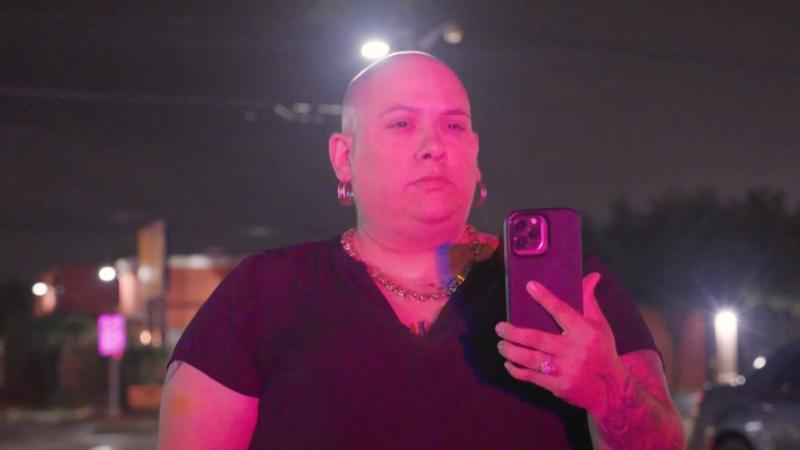Blaming the victim? Judges scold teachers for challenging gender identity, antiracism policies
Whether disruption was caused by the educators or those offended by their advocacy is a "distinction without a difference," judge found. Free speech group calls ruling "disappointing."
Two sets of educators challenging K-12 policies based on trendy academic theories suffered major legal setbacks two days apart and are now counting on federal appeals courts to uphold First Amendment rights against administrative prerogatives.
Oregon's Grants Pass School District prevailed over a lawsuit by science teacher Katie Medart and former assistant principal Rachel Sager alleging they were unconstitutionally disciplined for activism as "private citizens" against proposals to grant restroom and locker room access based on gender identity and force employees to use preferred pronouns.
U.S. Magistrate Judge Mark Clarke granted summary judgment "with prejudice," meaning the case can't be filed again.
Even if the district violated their constitutional rights, there was "no reason to believe" that terminating employees for "creat[ing] a disruption and the potential for disruption with both their off- and on-campus activities" would be unlawful, he said, granting qualified immunity.
Yet Clarke also waved off the district's allegedly selective enforcement of its rules. Medart and Sager claimed "multiple fellow educators" used district resources during school hours to express personal opinions about Black Lives Matter with no disclaimer, yet faced no punishment.
The duo could be forced to pay similarly ruinous attorney's fees as those imposed against Missouri teachers Brooke Henderson and Jennifer Lumley for challenging Springfield Public Schools' mandatory antiracism training. Both cases were filed in summer 2021, and both rulings were scalding against the educators.
Henderson and Lumley kept their jobs, while Medart and Sager were reinstated after a school board member flipped his vote. Sager, who started the case as Rachel Damiano, left the district in June.
The "disappointing" ruling flies in the face of the Supreme Court's Pickering precedent on the First Amendment rights of government employees, Aaron Terr, director of public advocacy for the Foundation for Individual Rights and Expression, told Just the News.
"[T]he only 'disruption' here was that some students, community members, and other employees complained about the assistant principal's and teacher's speech," which should not outweigh the "constitutional right to speak as a private citizen on matters of public concern," he wrote in an email.
The Oregon federal case somewhat resembles a Virginia state lawsuit against Loudoun County Public Schools for suspending a teacher who spoke against a proposed gender identity policy at a school board meeting. The Virginia Supreme Court upheld a lower court ruling that reinstated Tanner Cross while his lawsuit proceeded, and the parties later settled his retaliation claims.
The Southeastern Legal Foundation is appealing the Missouri ruling and $313,000 attorney's fee award against its clients to the 8th U.S. Circuit Court of Appeals. Pacific Justice Institute attorney Ray Hacke, who is representing the Oregon educators, told Just the News he'll appeal to the 9th Circuit.
"The District has asked for attorneys' fees," Hacke wrote in an email. "However, if we win on appeal, we won't owe the district anything — at least not until after trial. And if we win at trial, we won't owe anything there, either."
The Grant Pass district didn't answer queries for a specific amount it's seeking in attorney's fees and whether it's likely to be in the ballpark of the award issued in favor of the Springfield district.
Medart and Sager are seeking to raise $15,000 by April 28, the deadline for their notice of appeal, according to their GoFundMe page.
"Not only does this [ruling] harm the teachers' careers and reputations, it also encourages staff and students to engage in cancel culture, shutting down views they don't like," it says. The duo created and published a video against the proposed gender identity policy "on their OWN time, OFF campus, during Spring Break, with no reference to their employer."
Clarke didn't see it that way, claiming "a significant amount of evidence" shows the duo's activism "took place as public employees" even though they didn't mention their affiliations or school name in the "I Resolve" movement video and website and only shared it with colleagues during breaks in the school day.
"Discussions, planning, and recruitment happened on campus during the workday," he emphasized in the March 29 ruling, and the resulting campaign didn't affirmatively state they were sharing "personal viewpoints."
While the judge assumes Medart and Sager can establish a "prima facie case for First Amendment retaliation," he concluded the Grants Pass district "had a legitimate administrative interest in suppressing" the duo's speech that "outweighed" their First Amendment rights.
"[T]here is no question" their speech "caused a disruption" to the district because it prompted at least 10-20 complaints to the school and perhaps "nearly 100," he said, citing each party's estimate. "Students staged protests" and "teachers and staff were offended or upset," particularly because they promoted the campaign "during school hours, thus harming the working relationship between school staff."
It's a "distinction without a difference" whether the disruption was caused by Medart and Sager or the reaction to their advocacy, Clarke found. "In other words, 'but for' the Plaintiffs [sic] conduct, there would have been no community backlash," he wrote. Their own evidence, he added, shows that staff and some school board members believed "students would no longer feel safe" with the duo.
The plaintiffs failed to show they are members of a protected class in their equal-protection and employment-discrimination claims, Clarke ruled, noting the video they made does not cite "any Bible passage or scripture" and they told an investigator it was not made to "promote a religious viewpoint."
Clarke implied Medart and Sager were the real offenders for advocating "the restriction [of] students' rights to speak, express, and conduct their lives based on their expressions of their own sexualities and gender identities."
Rhode Island's Providence Public Schools didn't fare so well, however, in Liberty Counsel's recently filed lawsuit for alleged discrimination against Child Evangelism Fellowship's Good News Clubs.
A federal judge entered default judgment Wednesday at the request of the public interest law firm because the district didn't file a response by the deadline. Liberty Counsel said it now will pursue attorney's fees. The district told Just the News it couldn't comment.
The Facts Inside Our Reporter's Notebook
Links
- unconstitutionally disciplined for activism as "private citizens"
- similarly ruinous attorney's fees as those imposed against
- challenging Springfield Public Schools' mandatory antiracism training
- reinstated after a school board member flipped his vote
- Virginia Supreme Court upheld
- parties later settled his retaliation claims
- GoFundMe page
- "I Resolve" movement video
- website
- recently filed lawsuit for alleged discrimination
- district didn't file a response

















